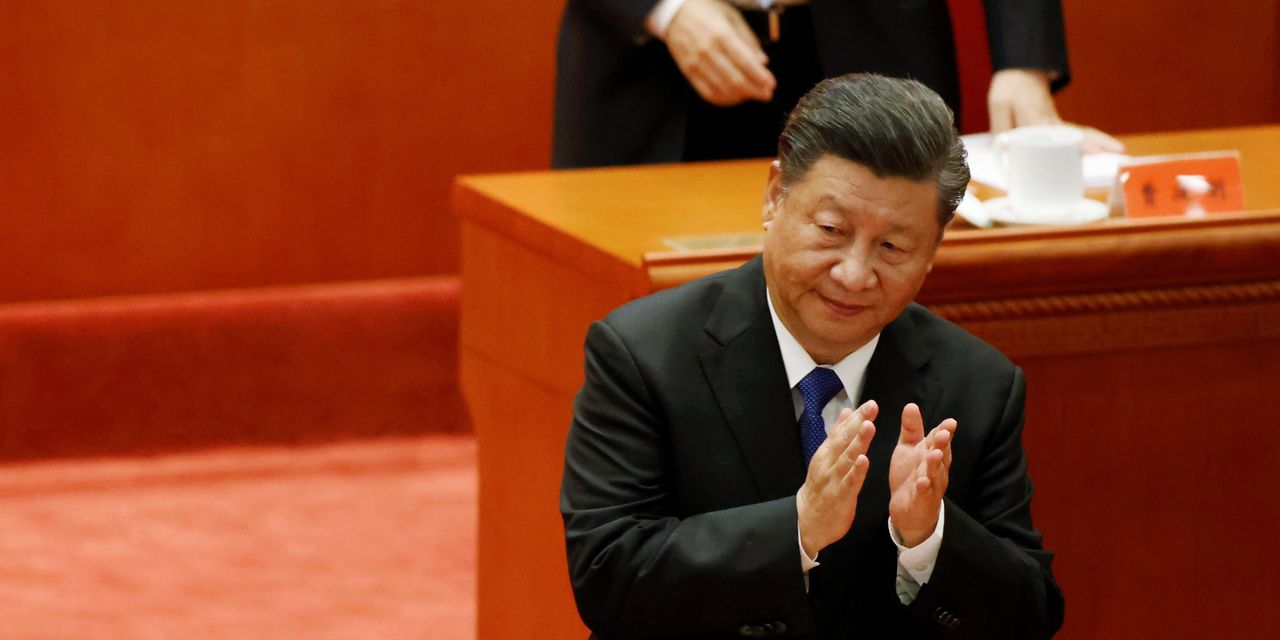Investors had, over the past 30 years, grown so accustomed to ignoring rhetoric about communism from nominally-communist China that a leader firmly putting equality at the heart of his economic agenda has caused more than a little heartburn. The Oct. 15 release of a fuller transcript of President
Xi Jinping’s
mid-August remarks on “common prosperity” therefore piqued considerable interest.
The publication in the party’s theoretical journal, “Seeking Truth,” appears partly aimed at reassuring investors and entrepreneurs spooked by novel language about “rationally adjusting” excessive incomes in the original mid-August readout of Mr. Xi’s speech, which came at the height of Beijing’s campaign to rein in its internet giants.
The expanded remarks still contain such language, but the tone and structure contain some marked differences. Mr. Xi forcefully addresses entrepreneurship right near the top, saying that “common prosperity depends on hard work” and innovation and that law-abiding entrepreneurs should be particularly encouraged. The newly released remarks also warn about the dangers of “welfarism” and government dependence—language that was absent from the original readout.
In theory, there is a fair amount for investors to like here: most important, it shows that Mr. Xi understands the importance of incentives—and that the rapidly escalating regulatory campaign over the past year risks damaging entrepreneurship. The speech also fits with Beijing’s long standing skepticism about big outlays for social services, as opposed to infrastructure or carrots for businesses like cheap land. Notably, China’s countercyclical policy in the initial months of the coronavirus outbreak focused on loan forbearance for businesses rather than direct income support for households, as in the West.
The overall message appears to be that the policy pendulum will move more toward equality: higher taxes and more pressure to donate for high-income individuals, moderately higher spending on social programs and education and tougher antimonopoly enforcement in some areas. But that isn’t the same as a huge expansion of China’s welfare state or confiscatory economic policies.
The problem, of course, is that this is all happening in the lead-up to the 20th Party Congress next fall. Mr. Xi’s bid for an unprecedented third term at China’s helm would presumably be strengthened by showing he has solutions to festering problems such as inequality, unaffordable housing and the high cost of child-rearing. The capricious manner in which certain industries and companies have been treated also has a strong political flavor.
While there had been warning signs about the private tutoring industry for some time, the virtual decapitation of the sector overnight—and its overseas listed companies—still sent a very strong signal of uncertainty and vulnerability. Likewise, despite some legitimate criticisms of Ant Group’s business model, it is hard to avoid the conclusion that the company’s abrupt fall from grace was related to Jack Ma’s very public criticism of some of Mr. Xi’s signature policies.
It is often said that the U.S. stock market prefers a divided government because, although inertia and ossification cause problems, it is at least predictable—and better than unchecked regulatory overreach. Likewise China’s consensus-based model of elite governance ushered in by
Deng Xiaoping
created many problems—among them pollution and corruption—but was also reasonably predictable and responsive to different economic interest groups.
For better or worse, those days are over. Whether that change will result in the common prosperity that Mr. Xi envisions remains to be seen.
Write to Nathaniel Taplin at nathaniel.taplin@wsj.com
Copyright ©2021 Dow Jones & Company, Inc. All Rights Reserved. 87990cbe856818d5eddac44c7b1cdeb8













































